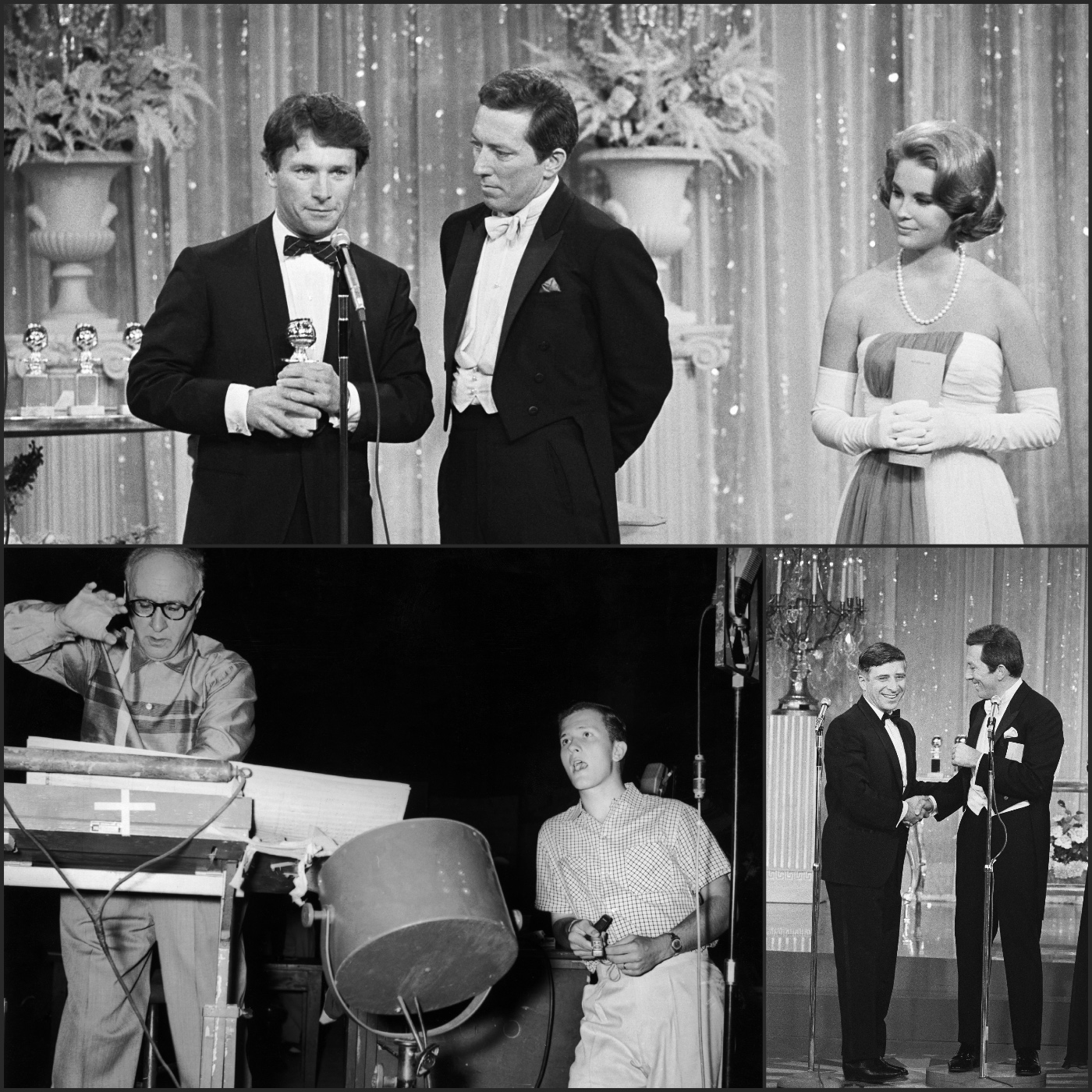
- Golden Globe Awards
Music and the Golden Globes: a Brief History – Part 1
Can anyone deny the role that music plays in molding a blockbuster? Without that component would the public be inclined to see movies over and over again, which is how one defines a blockbuster? What would the best-loved movies be without music? Can you imagine Gone With The Wind without “Tara’s Theme,” The Godfather without Nino Rota’s score, Casablanca without “As Time Goes By?”Isn’t it time we recognize the film composer as an optimum contributor in the making of either a classic or a blockbuster, or better yet, both?Which brings us to the Golden Globe music awards. Even though the awards themselves were established in 1944, the first music award for Best Original Score was not given until 1948, and then inauspiciously to the great Max Steiner for Life with Father. The Academy honored Dr.Miklos Rozsa for A Double life. The following year the HFPA choice was also the Academy’s, Brian Easdale’s classic score for The Red Shoes. But the next year Johnny Green won for Inspector General, a Danny Kaye comedy, whereas the Academy honored America’s reigning composer, Aaron Copland, for The Heiress.The new decade welcomed a consensus. Franz Waxman won both the Golden Globe and the Oscar for Sunset Boulevard. In 1952 the HFPA went with Victor Young for September Affair, while the Academy honored Franz Waxman a second year in a row for A Place in the Sun.The following year Dimitri Tiomkin won both the Golden Globe and the Academy Award for High Noon. After that, for no reasons given, there were no music awards for two years. But then in 1957 Tiomkin won again for Friendly Persuasion, the Academy preferring Victor Young’s lilting Around the World in 80 Days score. The next year again no award was given, not even for the rousing Malcolm Arnold score for The Bridge Over the River Kwai, which won the Oscar. And neither the following year. But then in 1960, Ernest Gold won for On the Beach, the Academy preferring Miklos Rozsa’s score for Ben Hur. The following year, surprise, Dimitri Tiomkin won again for The Alamo, the Academy preferring Ernest Gold’s Exodus. And then again in 1962, he wins for The Guns of Navarone. And he wins the newly created Golden Globe Best Song award for “Town Without Pity” from the film of the same name. (The Academy preferred Henry Mancini score and song from Breakfast at Tiffany’s.) After five wins he should have retired the award, or at least had it renamed the Tiomkin Trophy.But finally, in 1963, another composer is honored. Elmer Bernstein wins his first Golden Globe for To Kill a Mockingbird, the Academy prefers Maurice Jarre’s score for Lawrence of Arabia. In 1964, there are tons of Golden Globe nominations, ten each for all film and acting categories, but no music awards. But then in 1965 suddenly we have five nominations for Best Score and Best Song. Up until then were no music nominations just the winners. But then, would you believe it, Tiomkin wins again, this time for his “Circus World” song, which was in competition with the songs from Mary Poppins. The Academy chose “Chim Chim Cheree,” which the HFPA didn’t even bother to nominate. And Tiomkin won a second Golden Globe for the score of Fall of the Roman Empire, the Academy sticking with Mary Poppins. By now Mr.Tiomkin had won seven Golden Globes, but that was it for him, his last hurrah. 1966 was a memorable year for music. Even though the HFPA chose the forgettable “Forget Domani” from the Yellow Rolls Royce as their best song, the Academy’s had the good grace to select “The Shadow of Your Smile,” from The Sandpiper, one of the greatest songs ever written for a movie. Maurice Jarre, of course, won both the Oscar and the Globe for his incomparable Dr. Zhivago score. Things picked up for the HFPA in 1967 when Elmer Bernstein won again for Hawaii and “Strangers in the Night” was the best song. The Academy’s choice was Born Free, for John Barry’s score and title song. The following year 1968 was one the HFPA would like to forget. Camelot won for best score and “If Ever I Should Leave You” for best original song. The Academy didn’t do much better with “Talk to the Animals” from Dr. Doolittle, and Elmer Bernstein for Thoroughly Modern Milly.1969 was the year when the Hollywood Foreign Press discovered one of the all-time greatest songs, “Windmills of your Mind” music by Michel Legrand and lyrics by Alan and Marilyn Bergman for Norman Jewison’s The Thomas Crown Affair. It also won the Oscar a month later. The HFPA’s best score was Alex North’s for The Shoes of the Fisherman, but the Academy again preferred John Barry’s score for The Lion in Winter. Now, finally, with the coming of a new decade, the Golden Globe music awards had become respectable, and the HFPA has not looked back since.

